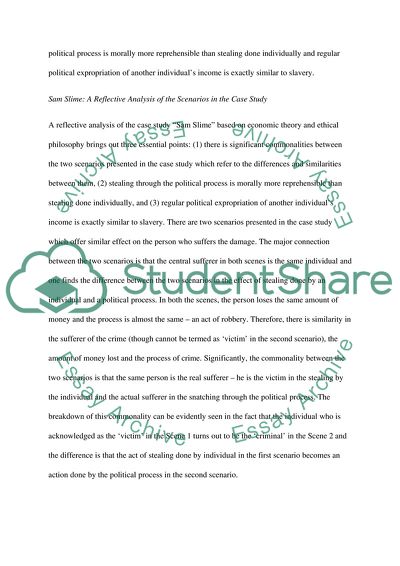Cite this document
(Sam Slime: A Reflective Analysis of the Scenarios Case Study - 1, n.d.)
Sam Slime: A Reflective Analysis of the Scenarios Case Study - 1. https://studentshare.org/politics/1721853-sam-slime
Sam Slime: A Reflective Analysis of the Scenarios Case Study - 1. https://studentshare.org/politics/1721853-sam-slime
(Sam Slime: A Reflective Analysis of the Scenarios Case Study - 1)
Sam Slime: A Reflective Analysis of the Scenarios Case Study - 1. https://studentshare.org/politics/1721853-sam-slime.
Sam Slime: A Reflective Analysis of the Scenarios Case Study - 1. https://studentshare.org/politics/1721853-sam-slime.
“Sam Slime: A Reflective Analysis of the Scenarios Case Study - 1”. https://studentshare.org/politics/1721853-sam-slime.


